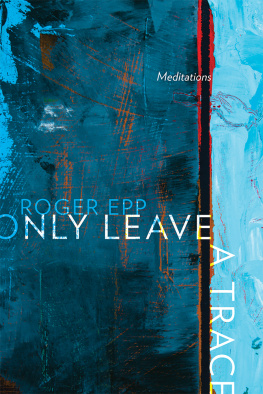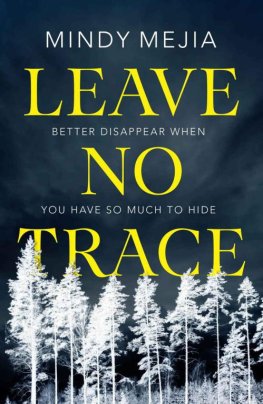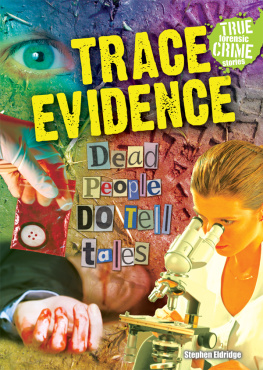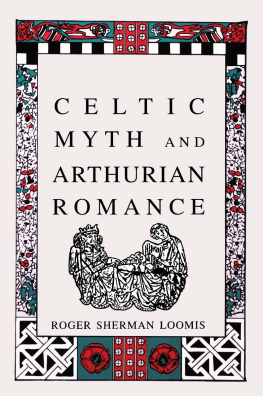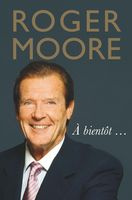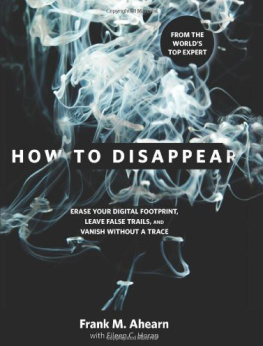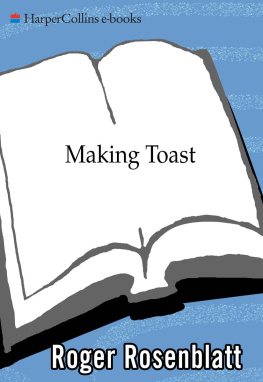Epp Roger - Only Leave a Trace
Here you can read online Epp Roger - Only Leave a Trace full text of the book (entire story) in english for free. Download pdf and epub, get meaning, cover and reviews about this ebook. publisher: The University of Alberta Press, genre: Detective and thriller. Description of the work, (preface) as well as reviews are available. Best literature library LitArk.com created for fans of good reading and offers a wide selection of genres:
Romance novel
Science fiction
Adventure
Detective
Science
History
Home and family
Prose
Art
Politics
Computer
Non-fiction
Religion
Business
Children
Humor
Choose a favorite category and find really read worthwhile books. Enjoy immersion in the world of imagination, feel the emotions of the characters or learn something new for yourself, make an fascinating discovery.
- Book:Only Leave a Trace
- Author:
- Publisher:The University of Alberta Press
- Genre:
- Rating:5 / 5
- Favourites:Add to favourites
- Your mark:
- 100
- 1
- 2
- 3
- 4
- 5
Only Leave a Trace: summary, description and annotation
We offer to read an annotation, description, summary or preface (depends on what the author of the book "Only Leave a Trace" wrote himself). If you haven't found the necessary information about the book — write in the comments, we will try to find it.
Only Leave a Trace — read online for free the complete book (whole text) full work
Below is the text of the book, divided by pages. System saving the place of the last page read, allows you to conveniently read the book "Only Leave a Trace" online for free, without having to search again every time where you left off. Put a bookmark, and you can go to the page where you finished reading at any time.
Font size:
Interval:
Bookmark:
Published by
The University of Alberta Press
Ring House 2
Edmonton, Alberta, Canada T6G 2E1
www.uap.ualberta.ca
Copyright 2017 Roger Epp
Illustrations Copyright 2017 Rhonda Harder Epp
LIBRARY AND ARCHIVES CANADA CATALOGUING IN PUBLICATION
Epp, Roger, 1958, author
Only leave a trace : meditations / Roger Epp ; Rhonda Harder Epp, illustrator.
Issued in print and electronic formats.
ISBN 9781772122664 (softcover). ISBN 9781772123128 (EPUB). ISBN 9781772123135 (Kindle). ISBN 9781772123142 (PDF)
1. Educational leadership. 2. School management and organization. I. Title.
| LB2805.E67 2017 | 371.2 | C20169080889 |
| C20169080897 |
First edition, first printing, 2017.
First electronic edition, 2017.
Digital conversion by Transforma Pvt. Ltd.
Copyediting and proofreading by Maya Fowler-Sutherland.
Cover design by Alan Brownoff.
All rights reserved. No part of this publication may be reproduced, stored in a retrieval system, or transmitted in any form or by any means (electronic, mechanical, photocopying, recording, or otherwise) without prior written consent. Contact the University of Alberta Press for further details.
The University of Alberta Press supports copyright. Copyright fuels creativity, encourages diverse voices, promotes free speech, and creates a vibrant culture. Thank you for buying an authorized edition of this book and for complying with the copyright laws by not reproducing, scanning, or distributing any part of it in any form without permission. You are supporting writers and allowing University of Alberta Press to continue to publish books for every reader.
The University of Alberta Press gratefully acknowledges the support received for its publishing program from the Government of Canada, the Canada Council for the Arts, and the Government of Alberta through the Alberta Media Fund.

I am become a puzzle to myself.
AUGUSTINE, The Confessions , Book X
His ceremonies laid by, in his nakedness he is but a man.
SHAKESPEARE, Henry V, 4.1
Yet who among us has never, from time to time, been forced into playing some role? The important thing is to be conscious of that role and to be able to reflect upon it and ones relation to it.
VCLAV HAVEL, To the Castle and Back
To dwell means to leave traces.
WALTER BENJAMIN, The Writer of Modern Life
Contents
Preface
THIS BOOK OF MEDITATIONS is an unconventional artifact of my time as founding dean and head of the University of Albertas Augustana Campus. The remarkable series of small miraclesmostly right people, right timingthat brought Augustana inside the provinces flagship public university on July 1, 2004, as a distinctively undergraduate, liberal arts campus, in the small city of Camrose, and then the challenge of making that merger work, set in motion an intense transition period shaped by new financial resources, constant cultural translations, and, inevitably, sudden anxieties for the future over local integrity within a much bigger institution. There were no templates for this work, and no guarantees that it would be successful, as I think, on balance, it has been. While I have my own visceral memories of the long strugglesfinancial and otherwisethat preceded the merger, having taught at Augustana since 1990, and while I was interim vice-president (academic) in the year in which it was negotiated, these meditations are meant neither as memoir nor as front-row history of that period. They have no documentary ambitions. They do not dwell on the transition period. They do not pretend, moreover, to distill new insights either for higher education or for leadership generally in times of changethe kind that fills the shelves of airport bookshops. Instead they are short meditations on a deans life.
These meditations take their literary inspiration from the form of the prose poem, which, as I learned from the writer Holly Iglesias, trades in fugitive content, that is, in things that will not or cannot be said in other ways. Though these meditations reflect the rare wonder, the risk, of having done a new thing together with many others, they record only select experiences. They do so with minimal annotation. They recognize beginnings and endings, but otherwise are arranged not so much in linear time as by rough concentric circles, larger and smaller: students, office, community, family, a geographic retreat. Many of them come from the interior life or, rather, from the relentless negotiation between the personal and the public requirements of the role, to speak, intervene, judge, and act. Outside of that, they are sparingly particular. They tell only what is theirs to tell.
In a certain sense these meditations bear a resemblance to what once were called work poems, though they are written not from the shop floor, the lumber mill or the oil patch, but from the deans office. As such, they may lack the natural advantages that accrue to a muscular, proletarian voice and the reversal of reliable caricaturesas if the distance from pallets of 24s or wildcat wells to verse is inherently so much longer and more exotic. These meditations share the same ambition, though, to humanize and scrutinize and uphold the integrity of an unfamiliar world of work. Their subject will be familiar enough to others who have worked in senior leadership positions in higher education settings. The choice to set them in the third person seemed most appropriate to the recollection of having played a role, however defining it might have been, for a finite period of years.
The paintings reproduced in these pages are by Rhonda Harder Epp, a visual artist and my life partner for more than three decades. They were painted at roughly the same time as many of these pieces were written. In the original, they are 5" 5" and 5" 7" studies created in preparation for larger canvases. Some of them appear as modernist, colour-field paintingsa radical departure in her casebut their purpose is more conceptual and unfinished. The paintings are visual meditations on the subject of walls, on what they limit, obscure and separate, but also, at least as I saw them initially, on the small creative openings that appear around those same walls, through them, under and over them. As the memory of my deanship slowly has settled, and as Rhonda moved on to windows, ladders and picket fences, I have come to wonder whether the instinct to look for the openings and therefore to imagine walls mostly as obstacles is not just an occupational requirement of university administrators in complex times, which it surely is, but an impatient narrowing of the field of vision. These paintings, in turn, now seem to me to be as much about the complexity of the walls themselves as they are about the openings. In the meditations, there are walls to knock down and get past. There are walls that demarcate spaces and difficult crossings: above all, to what is commonly and only half-jokingly called the dark side of university administration. But there are also walls to build and times to build them. There are walls to scale, to straddle, to reinforce. There are walls behind which to withdraw. There are walls on which to make a mark, and walls on which to lean, to rest.
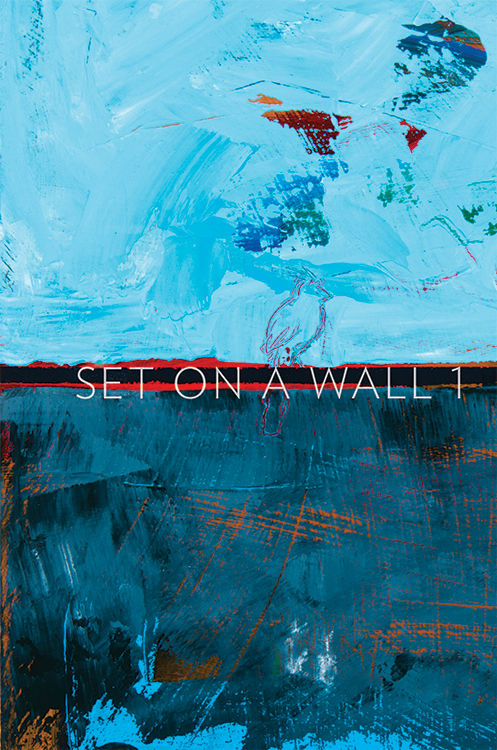
Only Leave a Trace
The poet is no stranger to the dean.
Here is what one knows and the other must learn: there are no innocent words; in print and in performance, precision matters; small numbers of readers, in the end, will make their own meanings mostly from the spaces left between the lines.
Next pageFont size:
Interval:
Bookmark:
Similar books «Only Leave a Trace»
Look at similar books to Only Leave a Trace. We have selected literature similar in name and meaning in the hope of providing readers with more options to find new, interesting, not yet read works.
Discussion, reviews of the book Only Leave a Trace and just readers' own opinions. Leave your comments, write what you think about the work, its meaning or the main characters. Specify what exactly you liked and what you didn't like, and why you think so.

